|
 On Sunday, October 25th, Jefferson Street
Christian Church hosted ‘Unity in the Community’ to discuss and ease
racial tensions. On Sunday, October 25th, Jefferson Street
Christian Church hosted ‘Unity in the Community’ to discuss and ease
racial tensions.
A six-person panel composed of Lincoln College administrators
President Dr. David Gerlach, soon to be Vice President Dr. Donna
Bradley; Preaching Minister Michael Mallick and Pastor Henry
Johnson, Reverend Glenn Shelton; and women’s ministries leader, Ms.
Black America Senior, Linda Randle, each answered questions as
presented by moderator Minister Ken Kohler.
Kohler said racial tensions around the world are happening, even in
the church. The question at the heart is how can we, the body of
Christ, help create unity in our community when the world is
actively working to divide us?
Kohler presented ideas and suggestions, which could be accepted or
rejected, stipulating that all participants, including the audience,
be respectful.
Kohler asked the panel to share their honest, truthful and heartfelt
dialogue.

The first question was directed toward Johnson asking if he had
experienced discrimination.
Johnson was chaplain for Logan Correctional Center. He was waiting
in a space for prisoner release one day when a man came in and
mistook Johnson as an inmate. He told the man, “Things are not
always as they seem.”
Though Johnson was not dressed like an inmate, this man proceeded to
handcuff Johnson and take him out of the institution.
Later, tucking it away in his heart Johnson realized maybe it was
innocent because the man was used to picking up African American
inmates.
When Kohler asked panelists how they have dealt with racial
profiling, members shared various examples.
Johnson offered public situation. He was in a map shop in Schaumburg
looking at globes. He noticed he was being followed. He felt angry
and insulted and struck by the absurdity that he might try sticking
a globe under his coat. He left the store. He said you must consider
the source.
Randle recalled playing with a friend and not being allowed to go
into her house for a drink of water. In stores, Randle has been
ignored when she obviously needed help. It was not one isolated
instance. Randle said it has been punitive. At school, she was told
we don’t want your kind.
Bradley noted that she had grown up in the 1960s south in Memphis,
Tennessee with signs saying colored and white. Even though the Civil
Rights Act had passed, nothing changed.
When Bradley was sent to a private integrated school, she was not
wanted. Her classmates mostly knew black people as their maids and
butlers. At a reunion years later, classmates reminisced about
horseback riding and skiing trips. Bradley told them she did not
remember these trips because she was not invited. Her classmates
told her their parents would not let them invite her.
That day, Bradley said there were tears and forgiveness and the
group decided to start over from that point. When Bradley’s son died
unexpectedly in 2009, she said these same classmates paid for the
funeral.
Another experience Bradley had was in a restaurant where a man
called her three-year-old child the “N” word. “I lost it!” The
police were called, and then she was the one was asked to leave the
restaurant. Bradley said she could write a book about the racism she
has experienced.

Before moving on to the next question, Kohler wanted to define a few
terms. He read dictionary definitions of racism, racial
discrimination and tribalism.
Racism is “belief that race is a fundamental determinant of human
traits and capacities and those racial differences produce an
inherent superiority of a particular race.” It is also “behavior or
attitudes that reflect and foster this belief: racial discrimination
or prejudice.” Finally, racism is “the systemic oppression of a
racial group to the social, economic, and political advantage of
another.”
Tribalism is “the attitude and practice of harboring a strong
feeling of loyalty or bonds to one tribe that excludes or even
demonizes others who do not belong to that particular group or
tribe.”
Next Kohler asked Reverend Shelton to describe his experiences with
racial discrimination.
When Shelton had started pastoring Second Baptist Church in Lincoln,
but had not yet moved here, he and his wife decided to go to the
store to get something to eat. His wife had suggested going to the
store in Springfield, but Shelton said they should spend the money
in Lincoln.
Driving past Lincoln College on the way to [the old] Kroger, Shelton
said law enforcement pulled out and started following them. Three
squad cars followed them from the college to Kroger. Just before
they got to the store, the first squad car turned its lights on and
pulled them over in the parking lot.
Three squad cars surrounded them. Jumping out of the car, Shelton
asked the police what the problem was. The police got out of their
cars with flashlights and demanded identification from Shelton. He
told the officers they may as well handcuff him because he would not
allow the person shining the light in his wife’s face to scare her
like that.
After radioing in for background check, the police told Shelton it
was just a courtesy stop and said one of the lights in the back of
Shelton’s license plate was out. Walking around the car, Shelton
found both lights on, so he kicked the car, then opened the trunk
and slammed it shut. The lights were still on and Shelton said there
was nothing wrong with them, but the police said there had been.
After relaying the experience to someone he supervised, that person
called then Sheriff Bob Patterson and Mayor Pete Andrews. The
deputies had not written a report, so Sheriff Patterson made them
write one. Mayor Andrews called Shelton and apologized. Shelton said
that went a long way for him accepting that they knew what was going
on.
Another time, Shelton was walking to church and crossed the lawn of
the Safety Complex. A group of teenagers came up to him and said,
“Get out of the road, nigger.” He chose not to say anything since he
was headed to preach.
Many other instances have happened because Shelton spoke out against
some of the treatment he has seen in Lincoln. Shelton became a thorn
in some people’s flesh. Shelton has been targeted and his whole
family has suffered because of it.

Shelton has been told to get out of town by people saying, “We don’t
need your kind.” He refused to leave Lincoln because it is his home,
and he will not let anyone cast him out regardless of what they say
to him.
At age 58, Gerlach said he cannot think of a single time he was
singled out for his race. Mallick likewise said much the same.
Next, Kohler asked President Gerlach about race relations at Lincoln
College two years ago versus now. Now in his sixth year at the
college, Gerlach said at the beginning of every year there are
comments made. It is something Gerlach has worried about and
addressed in the community at Lincoln City Council and Rotary
meetings.
This fall was different. During Resident Assistants training,
Gerlach said a couple trucks drove through campus with Confederate
Flags and Trump signs, racing their engines. The Student Life
employees filed reports and Gerlach was concerned.
There were also rough comments online about students slow walking
across the street with some saying they would use the students as
speed bumps. Gerlach said there were several dog whistle phrases
along the lines of students being animals.
Lincoln College has many African American students. The campus has
gained a good reputation as a caring community to which students
feel welcome. So these comments bothered Gerlach.
He said many college students are slow walkers on their phones and
in their own little bubble. No matter their color, Gerlach said,
students are often focused on themselves as demonstrated by their
many selfies.
Gerlach felt prompted to write an editorial in response to the nasty
comments on social media. Sometimes speaking out draws further
comments and Gerlach said someone drove through campus with a
loudspeaker yelling, “Put your hands up.” Gerlach’s said it broke
his heart and raises fears someone might take action.
Gerlach asked the audience to welcome Bradley, who is the new
Academic Vice President.
As she moved to Lincoln just two weeks ago, Bradley said she had
some trepidation after seeing Facebook comments. Bradley was
disheartened by the comments. She got online and welcomed
conversation, but has not heard from any of the commenters.
In his six years here, Mallick has also seen small segments of hate
and racism. It is often based on ignorance, which Mallick said can
be addressed. Even when based on ignorance, he said racism is still
a sin.
Hate is fed by fear, and Johnson said racism is “fear in a higher
octave.” Right now, the world is screaming. He said only the word of
God that can quietly calm it down and begin to articulate the
message of love. Johnson’s concern is that the church is not
speaking loud enough to overcome the higher octave of hate.
All people have a sin nature in them. Shelton said even black folks
need to confess, and he confesses that he is also at fault. He has
decided not to blame white people for the racism of their
forefathers. Making racism less visible is a shared responsibility.

Social media
Kohler asked how social media platforms have impacts racial
discrimination and what one can to do change online bullying.
Bradley said social media has exacerbated racism. People say stuff
they would not say in person. The voices of those for racism are
louder than the voices of those against.
Bradley encouraged those who disagree with racist comments to speak
up. She was encouraged to see comments of those who responded to the
negative and toxic comments about LC students.
What Bradley wants is for people to step out of their comfort zones
and get to know someone different from ourselves. And, for those in
the church that choice should not differ just by race. If we stay in
our Christian collective, who will we lead to Christ?
How do we open the race discussion?
There may be people who want to discuss racism, but may be afraid.
Therefore, Kohler asked the panel what practical steps to take
without potentially offending someone.
Johnson said we need to keep in mind that Romans 8:15 says we have
not been given a spirit of fear, but a spirit of adoption by which
we cry 'Abba Father.' Johnson said that scripture is important for
remembering who we are. Those who know God can make a difference.
The first step is to acknowledge one’s own racism and fear, and
confess our sins. Johnson said we must relate to one another as
human beings created by God. We all suffer from racism no matter who
we are. It affects all of us, and even Johnson said he has his own
racial hatred and anger, for which he asks forgiveness.
Secondly, Johnson said, we need to recognize we all have value and
cannot allow the enemy to strip us of our value or pit us against
one another. God has poured himself into all individuals and we are
all images of God. Johnson said the church must bring people
together.
Racism and the church
In preparation for the evening Kohler read an article titled
“Ethnicity, Tribalism, and Racism: A global challenge for the
Christian Church and its mission.” It states that in 1993, Billy
Graham called “racial and ethical resentment” the “number one social
problem facing both the world and the church.”
In that article, Graham also said, “tragically, too often in the
past, evangelical Christians have turned a blind eye to racism.”
They have also “been willing to stand aside while others take the
lead in racial reconciliation.” Many have said, “It was not our
responsibility.”
After reading that statement, Kohler asked Mallick if he agreed with
what Graham said.
Mallick had thought about the question and said the church has shied
away from the issue of racial discrimination.

Mallick told a story from 1968 where a boy asked why Martin Luther
King was shot. Jane Elliot, the teacher, asked him and other
students if they wanted to understand discrimination. She split the
class into blue and brown-eyed groups and the blue-eyed group was
treated better in class. She later switched the groups, and the
blue-eyed group did not like having the brown-eyed group get the
preferential treatment.
While Mallick said he has lived a privileged life and it is hard for
him to understand discrimination, he said the church must take the
lead in changing that.
At a Promise Keeper’s rally years ago, Mallick said the speaker
talked about racial reconciliation in the church and opening the
doors to everyone.
In 1996, Mallick was preaching at his first church and asked the
elders if he and a black preacher from a nearby church could switch
pulpits for a day. The elders quickly shot him down and he realized
racial discrimination was a problem in the church. Mallick said the
church needs to address racism and speak out against it. Mallick
said humans have created racism, which is a sin issue.
What are the barriers?
Addressing Randle, Kohler asked her how she feels the church is
doing with the removal of barriers.
In some all-white churches Randle has been in, she has been ignored.
In other churches people introduced themselves to Randle and asked
her name. Additionally, Randle has been to churches claiming
diversity but have no one on the stage or in the leadership who look
like her.
Working with women’s ministries, Randle said she has worked with
both races. However, she said there is often only one person of
color in her small group.
Recently, Randle was asked to share her experiences with the group
she meets with in Bloomington. Randle said it is our mandate to
love. She has friends of other races who love her and take care of
her. As Randle said, we are one race, the human race.
We need to be transformed, have transparency and be real. If we
cannot be transparent, Randle asked, how we can change others. We
all have misperceptions of one another. She wants people to see
color and eliminate prejudices. Randle said we should invite someone
different from us to lunch.
Shelton shared that transparency begins by being honest with
yourself. In listening to others, he said, blacks are just as racist
as white folks. In self-reflection, he was racist, but he knows the
Lord will forgive him of his sins and cleanse him from all
unrighteousness.
The answer to racism is Jesus. As individuals, Shelton said, we are
the church and the ones’ who make the difference. He reminded
everyone of words to a song, “Let there be peace on earth and let it
begin with me.”
Johnson said we must take responsibility in getting to know one
another.

Shelton illustrated the value of self-examination. Because he knows
God’s forgiveness through confession (1John 1:9) of his own sin of
racism, he knows he has been cleansed of all unrighteousness. And
now he is free to pursue fellowship saying, I am going to walk the
miles with you, share the lows with you, and will turn the other
cheek and love you no matter what you do to me. This is a new gift
he has received from God because of his repentance.
Shelton recognized that racism is here to the end when Jesus
returns, but it is Jesus through individuals who make the difference
in the now. But we must get to know each other for that to happen.
Later, Shelton would emphasize, “Put others interests above your
own.”
Quoting Martin Luther King, Shelton said; don’t judge children by
their color, but by the content of their character.
Gerlach said if we do not get together, the future will be
uncomfortable because all races will be together for eternity.
Revelations 7:9 says, “After this I had a vision of a great
multitude, which no one could count, from every nation, race, people
and tongue standing before the Lamb.”
For Bradley, one question is how you can say you love God if you do
not love people. Our world views are based on our life experiences.
If we conclude what all of one group is like after one negative
experience, Bradley said, that is the seed of racism.
In the Criminal Justice classes Bradley teaches, her students often
say they do not like the police. But their view may be based on one
negative experience. Bradley’s mother taught her not to make
decisions about people based on the color of their skin and she has
taught her children the same.
Tribalism
Kohler asked Johnson about tribalism and whether he saw tribalism
and race working in the prison system.
In prison, Johnson said tribalism is seen in the interaction between
security and gangs. Security is maintained by the exercise of power.
Prison tribalism can be defined by ‘them versus us’ or the ‘in
versus the out’ group.
In our American government system we have always valued the peaceful
transition of power from President to President. However, Johnson
said for the first time in his memory that has been called into
question because of tribalism that says my group is not willing to
share with your group.
Other countries have various names for their tribes.
In America, Johnson said black and white have become social
constructs to maintain, acquire and exercise power of one group over
the other.
We are all created equal with certain inalienable rights, which
Johnson said has kept our country from blowing up. However, we are
currently on the brink of collapse because of tribalism.
Gerlach said Satan uses divisiveness to squash the church and pull
us apart. However, Christ’s kingdom will come regardless of what
happens to the United States.
Mallick added, “Will the gates of Hell prevail against America,”
possibly, probably, but will not prevail against the church. We as
followers of Jesus need to be sharing love, grace, forgiveness,
care... for one another.
[to top of second column] |

Questions from the audience
The first question was from Deb Parker, who lives near Lincoln
College. Parker said she had no idea about recent situations until
she saw President Gerlach’s editorial. She had heard hateful
comments were made and asked whether the police are aware of it.
The issue was reported to the police by Gerlach, but he said people
have the freedom to say what they want.
Bradley said hate speech is not illegal, but hate
speech inciting violence is. Until something happens, it is just
speech.
When she does not speak out against racism, Parker said she has been
told people in the black community might think she is siding with
racists. She also has been told the churches are not stepping up.
Parker asked what more we can do for unity in the community.
Earlier in the semester, Gerlach said members of Jeff Street wrote
kind words on the sidewalk at Lincoln College. Another time, members
of Lincoln Christian Church bought students ice cream.
Speak up and do the right things
Correcting people’s ignorant comments is something Bradley said we
should do.
Kohler asked about the legal ramifications of movements that cause
riots and protests.
Some events today are reminiscent of what happened in the Civil
Rights Era and Bradley is saddened we still deal with it. Then and
now, Bradley said older people should explain the process of
changing policy through voting. We must teach younger generations to
change laws from inside the system.
Riots are unfortunate consequences of some events, but Bradley said
some go from city to city to incite riots. When Bradley lived in the
St. Louis area and there were riots after the Michael Brown case,
she said many involved in them were not from St. Louis.
Bradley called these schemes demonic as they move toward
destruction. Racism is a moral issue, and the sin nature fights
against harmony with all people.
Audience member Dale Ridgway worked in the prison system for years
where one black person there accused him of being racist. Noting
that most of the people in the audience were white, Ridgway asked
how to bring more Black or Hispanic people into churches.

Mallick said it takes intentionality: making friends, using our
voices, showing love and opening doors.
When Shelton moved here many years ago, he said Second Baptist
became popular and many white people came to the church. Over time,
the number of white people started dropping due to peer pressure.
Kids being asked why they were going to that black church and told
they were going to become a nigger lover.
Shelton hosted dinner on MLK’s birthday for years and had preachers
from the local ministerial alliance there speaking, but their church
members did not attend. Members of one church told their minister
they would never set foot in a black church.
Shelton said we should get to know someone before passing judgement.
Shelton has met with a group of men from Jeff Street every Saturday
for years and said they have helped him grow spiritually.
Several LC basketball players have been attending Second Baptist.
Gerlach said they are developing relationships with the members.
Nancy Otto, who is half Irish, said she has experienced
discrimination and appreciates hearing discrimination works both
ways. She asked about lessons panel members could possibly share
from experiences of their own racist feelings. She said everyone in
the United States needs to be candid about their own feelings.
Corporate repentance is something Shelton said is needed. They have
influence because they employ people. By way of example he heard
about racism between students at the high school. He called the
principal at the time. The principal told him she would talk to the
teachers. Shelton said the teachers might deny it happened and asked
to talk to black and white students.
He started a talk group for students with pizza and chicken wings to
make connections.
Retired teachers told Shelton racism had been occurring for years at
the school, but they were told not to speak against it. He said
corporate leaders need to stop racism.
Listen to others
At the prison, Johnson taught cultural diversity. For example, Irish
Americans were told they were not wanted in America. Johnson said
many groups have been discriminated against and endured social
injustice, citing most recently the Anti-Semitic and Islamic phobia
against people from the Middle East. He noted leaders through
history who stood up to make change.
He said social injustice happens to all of us. Recognizing others’
journeys and coming together may be the beginning of healing.

Bradley is in a small group with white women. One woman told Bradley
she was afraid of black women due to being bullied by a black girl
as a child. The woman’s racism was based on fear. Bradley wants
others to understand experiences like being followed around in a
store.
At a work conference one of Otto’s sisters attended years ago, Otto
said her sister was the only white woman in a group of black women
and men. Her sister was trying to fit in with the others. It had
been agreed upon that they would all dine together that evening and
the others told Otto’s sister they would come get her. However, at
dinnertime she was intentionally left behind. Though she felt
unwanted by the group, her sister went downstairs to the hotel
restaurant the others were eating in and joined them.
Bradley agreed, exclusion based on race is wrong no matter what.
To brainstorm solutions to some of these issues, Bradley said
student leaders from the college met with the Lincoln Police
Department recently. They would next meet with local business
owners, then government officials and eventually citizens.
Community member Ariel Dilworth asked Pastor Shelton if his apology
might come across as an excuse for white evangelicals to say all is
okay. She said too many in American churches have not spoken up
against racism and we need to come face to face with our sins.
Dilworth had several questions:
If she does not feel indignations combined with compassion, how can
unity happen?
Until we can get Christians to understand communal and historical
sin, how can we make unity happen?
How can we unravel this mess?
Repentance
While saying these were valid questions, Shelton said no matter your
religious background, it does not make any difference if you do not
repent of your sin nature. Without that, there will be no hope for
reconciliation. Shelton said we need to listen and he feels the best
is yet to come.
Randle said it starts with you. She said looking at Peter and the
Gentiles is a good comparison. Communicating and getting to know
people also helps.
The Holy Spirit will convict you and heal, the gospel will transform
the heart. Randle said we need to take steps of faith, be like
Christ in action and get out of our comfort zones. We are more alike
because of Jesus blood.
Kohler said the church does not want to fall into the sin of
commission, nor the sin of omission when we do what we shouldn’t or
don’t do what we should. He wants to see open, honest and authentic
dialogue.

Children
One audience member said she has bi-racial grandchildren. One was
called the “n” word by a white child and it broke her heart. Her
grandson said he did not understand because he is brown. She asked
what to do with children and where teaching them starts.
Children are resilient, but, Johnson said, we cannot protect them
from everything. His daughter was once spat on by another child, and
he told the mother to keep her son away from his daughter.
Johnson and his wife taught their daughter about her heritage, but
also instilled in her an appreciation for all people. We can affirm
our children and Johnson told the audience member that her listening
to her grandson will help carry him forward.
We are created in God’s image, Mallick said, we need to let kids
know they are loved and special.
Parents must break the cycle of racism. Bradley said she asks
students what their parents have taught them about police and where
they should not be.
We are indoctrinated to see skin color. However, Shelton said we
must teach our children that color does not matter and the shade of
skin does not matter. He has helped raise many surrogate children of
all races.
We celebrate and appreciate flower gardens, Johnson longs for the
day we can celebrate the variety of humanity. One definition of
humanity is a beautiful expression of what it means to be human in
this world with all its variety.
Another community member said he felt he experienced reverse
discrimination in college. White kids played on one court and black
kids on another. Finally, he got to play on the other team. His
nephew wanted to play on the Lincoln College soccer team but was
told there may not be a spot for him and asked President Gerlach why
that happened.
Gerlach said the soccer team has many international students on it
but acknowledged the issue. Coaches may have their own perspective
on talent and Gerlach said he has had recruiting issues. Gerlach
wants students from everywhere.
The last audience member to speak said her granddaughter was slapped
around by black kids on her bus, but it stopped after prayers. She
prays for unity and said Christians should step up.
In his final question, Kohler asked what steps we can take to create
authentic change.
Bradley said we need to be intentional about getting to know someone
who does not look like us.
Gerlach answered in Jesus two commandments: Love the Lord your God
with all your heart, with all your soul, with all your mind and love
your neighbor as yourself.
Getting out of comfort zones is something Johnson wants to see. He
said we should worship together, share meals, learn a new language
and see the world according to John 3:16. God came to save everyone.
Mallick’s answered, all are special in God’s eyes. He said we need
to teach others that God shows no partiality and make friends with
someone different from us.
Randle said we need find opportunities with people. Ask God to lead
you by the Spirit into a ministry of reconciliation. Teach your
children and grandchildren to pray.
Lastly, Shelton said we should get to know each other and walk
together down the narrow straight way that leads to eternal life.
Walking together (and he named those with him on the panel) will
attract people to the light. He said walking together is going to
attract others and begin to break down this gridlock that we have
before us.

Kohler drew the evening to a close with two Bible passages. From
John 17 where Jesus prayed for those who would believe in him that
they would be one as we are one. His prayer was for everyone to be
brought to complete unity.
The other passage was Romans 12:2, which says, do not conform to the
pattern of this world, but be transformed by the renewing of your
mind. Then you will be able to test and approve what God's will is -
his good, pleasing and perfect will.
In a closing prayer, Kohler thanked God for being able to share the
message and that we would all be one. He prayed our behaviors would
match our words, creating unity in a divisive world and glorify God.
[Angela Reiners]
About the panelists:
Dr. Donna Bradley:
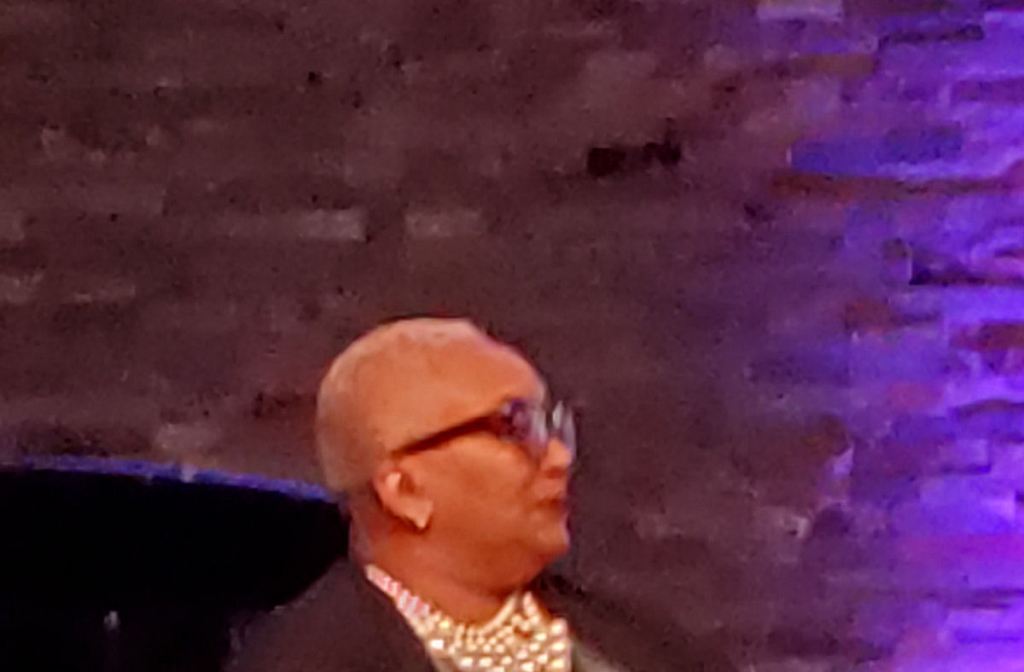
Dr. Bradley currently serves as lead faculty for Criminal Justice at
Lincoln College. In January, she will assume the role of Vice
President of Academic Affairs. Dr. Bradley graduated from Brown
University with a BA in Political Science, Howard University School
of Law with a Juris Doctor Degree, Columbia College with a Master’s
in Criminal Justice, and Capella University with a PhD in Public
Safety and Criminal Justice. Dr. Bradley is currently pursuing a
Doctor of Education degree in Instructional Leadership with a focus
on Higher Education, her third career. Her first career was an
attorney and her second, inner city ministry.
Dr. David Gerlach:
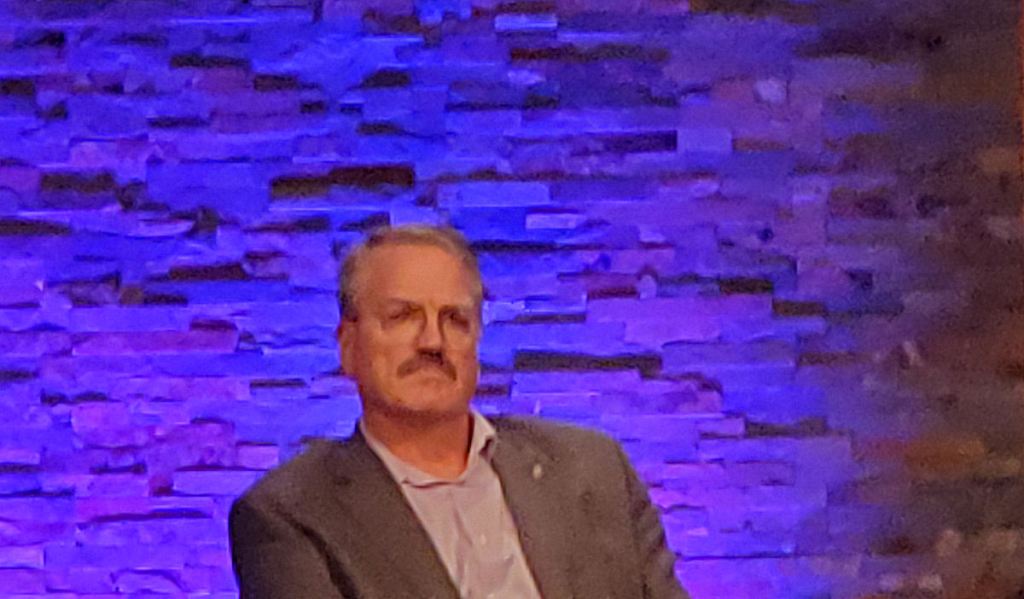
Dr. David Gerlach is the 22nd president of Lincoln College, a
liberal arts college with campuses in Lincoln and Normal, Il. Dr.
Gerlach has a Doctorate in Philosophy from Syracuse University in
Higher Education, a Master degree in Education from St. Lawrence
University, a Bachelor degree in Business Administration from
Roberts Wesleyan College, and an Associate of Applied Science in
Business Administration from SUNY Canton.

He and his wife, Lisa, have two grown children, one grandson, and
are enjoying central Illinois.
Pastor Henry Johnson:
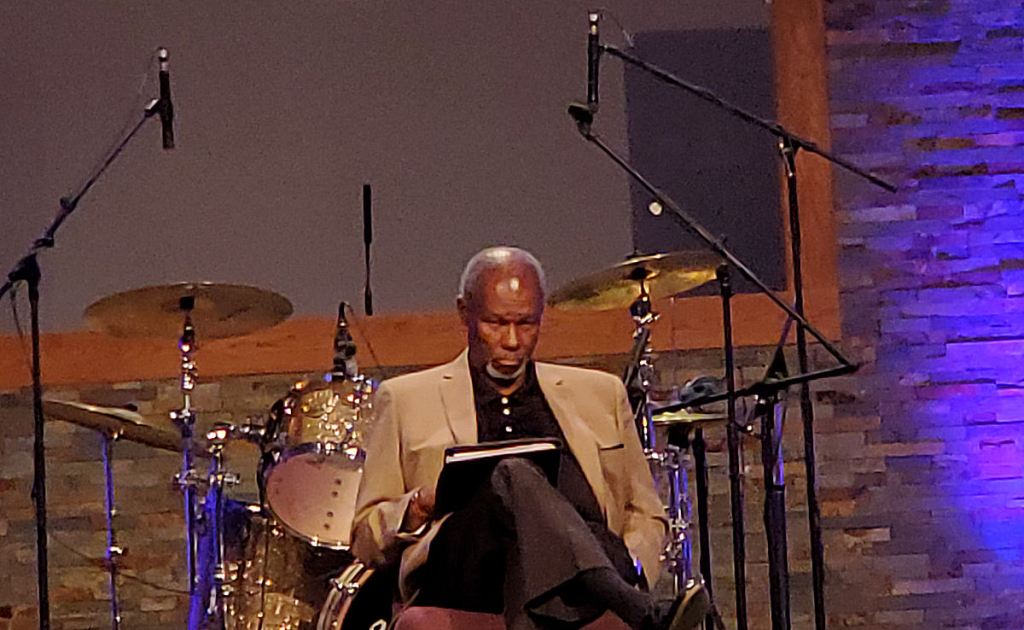
Henry Johnson is a graduate of Lincoln Christian University and
Seminary with a Bachelor of Arts in Ministry and a Master of Arts in
Pastoral Counseling.
Johnson served as chaplain at Logan Correctional Center for 28
years. During his tenure as chaplain, he served for four years as
the President of the Illinois State Association of Chaplains.
Johnson served as Chairman of the Elder Board for three years at
Jefferson Street Christian Church.
He is currently serving as Pastor of Eminence Christian Church,
Atlanta, Il.
Henry has been married for 50 years to his beautiful wife Ida, and
they have a daughter, Eboni, who is married and Practicing Clinical
Psychology in Nashville, TN
Pastor Michael Mallick:
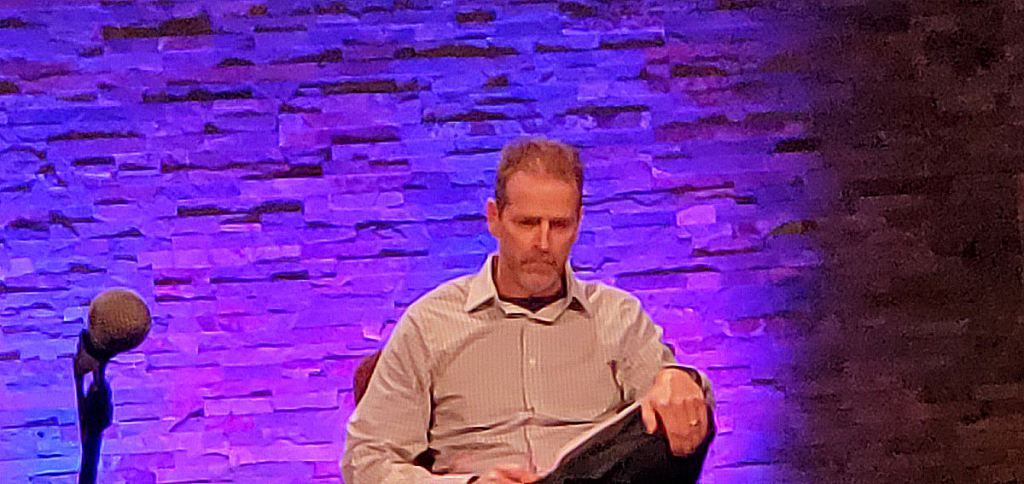
Michael and his wife Beth have six children combined, all living
across the United States. They have ministered at Jeff Street for
six years. Michael and Beth are natives of central Illinois.
Mallick has served as a minister for 27 years in churches in
Illinois, Florida, and Oklahoma. He is a 1993 graduate of Lincoln
Christian College where he received his B.A. in Christian Ministries
majoring in preaching. He has also completed several hours towards a
Master’s degree.
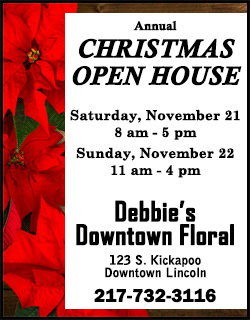
Along with a deep passion for preaching God's Word Mallick enjoys
reading, including authoring a children’s book, running, hiking,
fishing, and about any outdoor activity. Mallick has completed
numerous marathons, half marathons and 5K races.
Ms. Linda Randle:
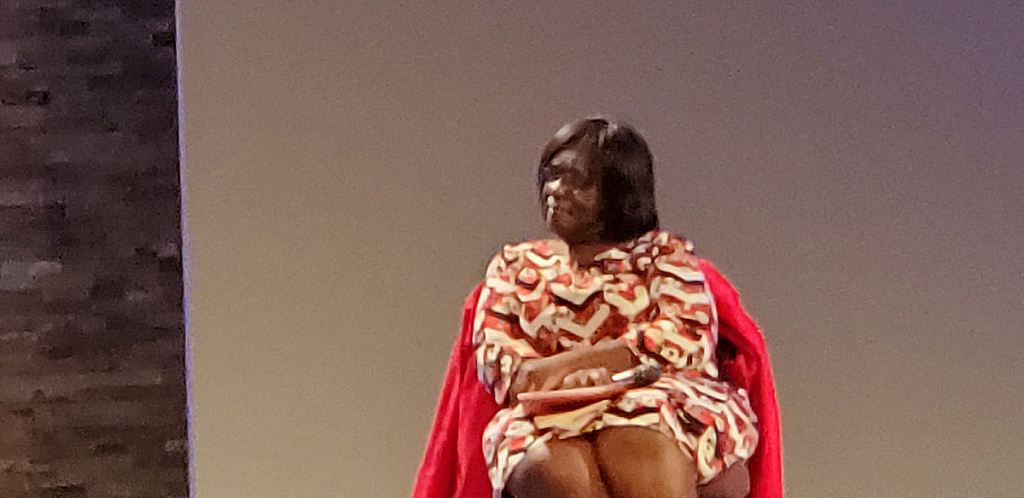
Linda Randle earned an undergraduate degree from ISU in Public
Relations and a Masters in Spiritual Formation from Lincoln
Christian University. She is employed at a local insurance company
in Bloomington, IL.
Randle is the mother of two adult children and a grandmother of
four.
Her passion is to see women develop an intimate relationship with
Christ. Randle has been involved in women's ministry in various
capacities since 2001.
Currently, Randle serves as a small women's group co-leader.
She was recently crowned as Ms. Black America Senior 2019 on
September 20, 2020.
Reverend Glenn Shelton:
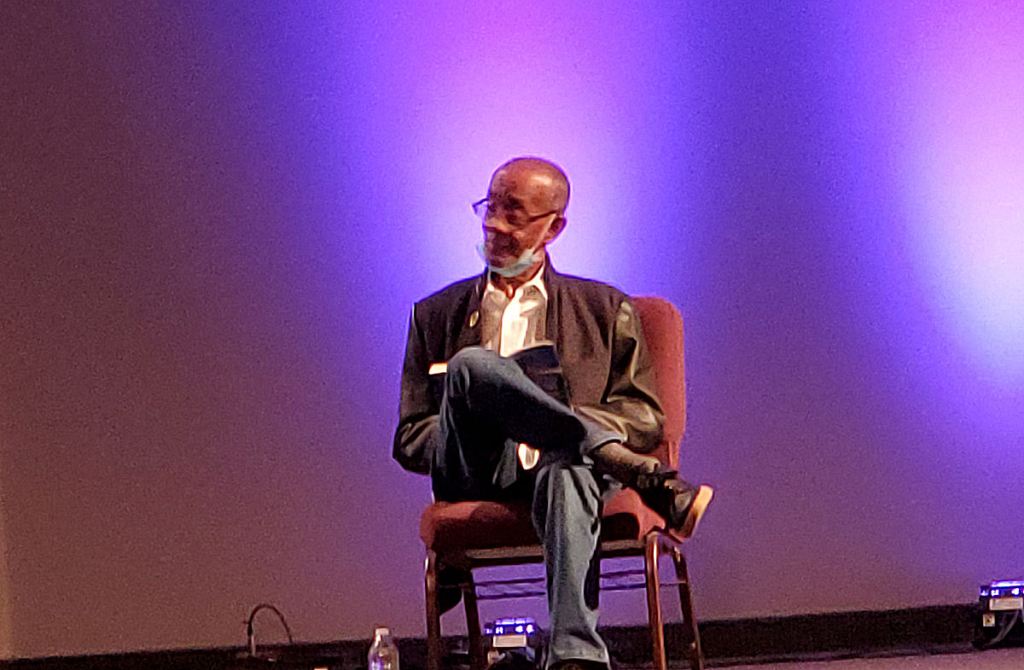
Reverend Glenn Shelton has a Bachelors In Pastoral Studies at Moody
Bible Institute. He is a former alderman for the city of Lincoln. He
is a Chartered Board Member for the YMCA in Lincoln, former
Chairman, Family Selection Committee at Habitat for Humanity.
Reverend Shelton is a former trustee on the board at Lincoln
College.
Reverend Shelton is a former cryptographic operator in the U.S. Air
Force and was a Pastor at Second Baptist Church in Lincoln for 36
years.
He has been married to his wife Ginger since 1963. He has six
children, 16 grandchildren and 25 great grandchildren. |